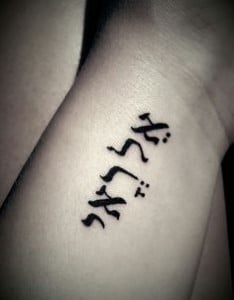The U.S. Supreme Court rejection of the Defense of Marriage Act is an occasion for all of us to reflect on the long road to rights for the LGBT community in America. My own evolution on gay rights has been a long and winding road as well. I grew up in the 1970’s in a family that was both patriarchal and homophobic from the beginning. Now, of course, as a young man, I had no idea what patriarchy meant or why anyone would even think of being gay. It was assumed that men ruled the roost, and the game was set so that the men seemed to have the power and any male who wasn’t up to snuff was thought of in words that were demeaning at best. This seemed to be the case at school and really everywhere I went. We took it for granted, or at least I did. It was our common culture.
In my own early experience of Christianity nothing threatened this “normal” way of thinking; men preached, women served and no one mentioned that sexuality extended beyond heterosexuality. I really didn’t have a clue of a world beyond that white Protestant, patriarchal world of suburbia.
I went to seminary thinking that I would study theology and religion, and eventually become a pastor or, more likely, a scholar. But something happened that changed everything for me. Without my knowing it, my first friends at Princeton Seminary were the gay community on campus. I was so naïve that I simply took them as a delightful, witty, smart group of folks who made me feel welcome and in whose company my mind and heart felt great delight.
But two or three months into my seminary life, somebody asked me whether I was gay. It was one of those moments that I’ll never forget. My whole body was jarred by the very question, “I’m not gay…” I blurted out. And it was true, but of course, forceful denials like that make one suspicious. “Well, your friends are the gay community on campus.” And I thought, “No, these are people I love and respect and enjoy. It doesn’t matter what their sexuality is, to me.”
To a great extent, this continues to be my perspective now even today; it doesn’t matter what your sexuality is; it matters who you are and what is the quality of your character.
But those early prejudices had to be unlearned. For me, as a professor and educator, learning is the great process of recognizing our prejudices and being critical of them and then, if necessary, to change them. This is something I’ve been doing all my life. And it creates, for me, a powerful sense that life, in all its fullness, continues to unfold. I teach my students that this is what all education is at its core; all research is really all about recognizing what once was thought, questioning it, and then looking at all the data, and then reaching one’s own conclusion.
This happened for me on the gay ordination issue early in my scholarly career. I read all of the books on the issue; I poured over the exegesis of the biblical passages both for and against gay ordination, and I arrived at my own opinion. I simply concluded, that God is on the side of more life and not less. More of our fellow human beings should be able to live, thrive, marry, preach and teach, and so all of God’s children, gay, straight, men and women should be able to proclaim the gospel in word and deed. We should judge people by the content of their character, not the color of their skin or the person that they happen to love.
But this great unlearning takes time, and for some of us, it will take more time. I understand that. One of the reasons that I continue to follow and believe in Jesus Christ is because I believe that Jesus was fully free to step into new territory, and learn and grow and allow others the same freedom. I love Matthew chapter 15, where the Canaanite woman asks for help from Jesus, he refuses and shames her, and she shames him right back, and in the process changes his mind. The great unlearning had to happen even to Jesus.
It feels like the whole country is going through a great unlearning. Our gay brothers and sisters deserve the dignity of the state recognizing their love and commitment; they deserve the same rights that straight people take for granted. In fact, they are demanding, not unlike that Canaanite woman, that this be so. It is time to unlearn our old prejudices and recognize that everyone is welcome at the table.
Check out my article, “Introduction to the Debate Over Homosexual Ordination: Subcultural Identity Theory in American Religious Organizations.” Review of Religious Research 41:1999, pp. 184-206.











